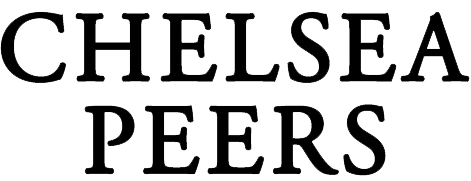

Renfold Limited

London Borough of Hammersmith and Fulham, United Kingdom
October 2024
Apparel
Wholesale/Retail
United Kingdom
Renfold launched in 2012 with a clear vision of becoming the home of trend-led fashion with creative design, accessible quality and community at its core. This vision remains true today enabling us to become a trusted partner for leading retailers worldwide. Operating from our West London headquarters, we have established nearly a dozen brands, including the market-leading sleepwear brand Chelsea Peers. Chelsea Peers has expanded to include dressing gowns, nightshirts and slippers, while also launching loungewear and swimwear ranges. Each collection features hand-drawn illustrations and quality fabrics handpicked for their functionality, softness and more sustainable credentials. Over the past 12 years, we have been on a journey to become a more sustainable brand, committed to making better choices for our planet, our customers and our community. Whether relaxing at home or unwinding poolside, we promise to elevate your downtime with premium designs that bring a touch of luxury to your lounging experience.
Overall B Impact Score
Governance 18.4
Governance evaluates a company's overall mission, engagement around its social/environmental impact, ethics, and transparency. This section also evaluates the ability of a company to protect their mission and formally consider stakeholders in decision making through their corporate structure (e.g. benefit corporation) or corporate governing documents.
What is this? A company with an Impact Business Model is intentionally designed to create a specific positive outcome for one of its stakeholders - such as workers, community, environment, or customers.
Workers 25.0
Workers evaluates a company’s contributions to its employees’ financial security, health & safety, wellness, career development, and engagement & satisfaction. In addition, this section recognizes business models designed to benefit workers, such as companies that are at least 40% owned by non-executive employees and those that have workforce development programs to support individuals with barriers to employment.
Community 20.3
Community evaluates a company’s engagement with and impact on the communities in which it operates, hires from, and sources from. Topics include diversity, equity & inclusion, economic impact, civic engagement, charitable giving, and supply chain management. In addition, this section recognizes business models that are designed to address specific community-oriented problems, such as poverty alleviation through fair trade sourcing or distribution via microenterprises, producer cooperative models, locally focused economic development, and formal charitable giving commitments.
Environment 31.0
Environment evaluates a company’s overall environmental management practices as well as its impact on the air, climate, water, land, and biodiversity. This includes the direct impact of a company’s operations and, when applicable its supply chain and distribution channels. This section also recognizes companies with environmentally innovative production processes and those that sell products or services that have a positive environmental impact. Some examples might include products and services that create renewable energy, reduce consumption or waste, conserve land or wildlife, provide less toxic alternatives to the market, or educate people about environmental problems.
What is this? A company with an Impact Business Model is intentionally designed to create a specific positive outcome for one of its stakeholders - such as workers, community, environment, or customers.
Customers 5.0
Customers evaluates a company’s stewardship of its customers through the quality of its products and services, ethical marketing, data privacy and security, and feedback channels. In addition, this section recognizes products or services that are designed to address a particular social problem for or through its customers, such as health or educational products, arts & media products, serving underserved customers/clients, and services that improve the social impact of other businesses or organizations.